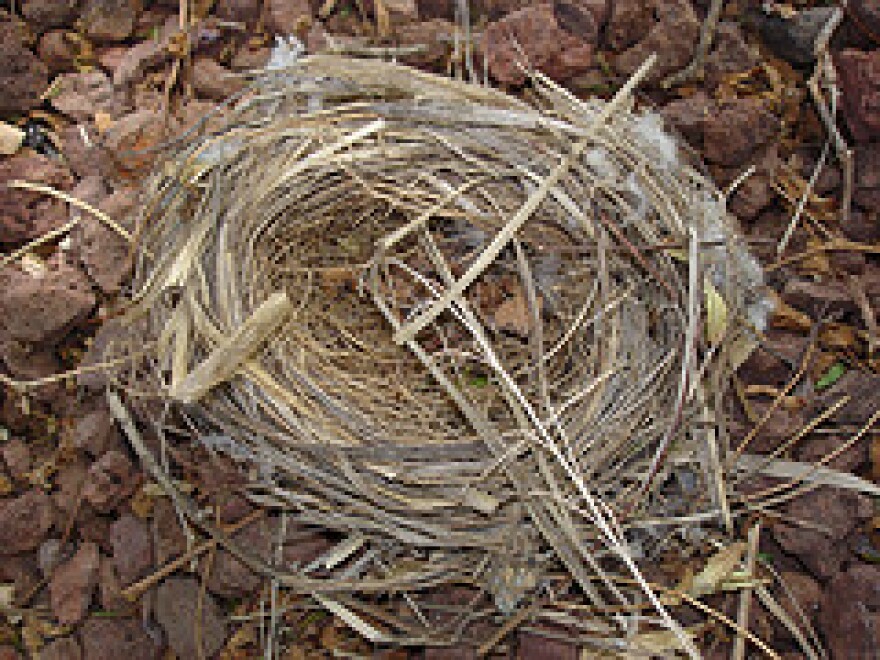There’s a bird that’s been trying to get in my house. He pecks at the window all day. What does he want? A bird flinging himself against a window ten hours a day does appear to to be trying to get inside. Go outside and look at the window from the bird’s perspective, and you’ll see your own reflection. The bird is met with a rival who answers his every parry with a thrust, who sings at the same time he does --the height of avian rudeness! Most importantly, it’s a rival who will not be vanquished, and will not go away. Nothing in his experience has prepared him for that.
As a child, I was fascinated with a black-and-white photograph I saw once in a book. It showed a male cardinal, perched on the edge of a cement pond, feeding a beakful of insects to a school of hungry goldfish. Why would a cardinal feed goldfish? Well, a gaping goldfish mouth looks an awful lot like a baby cardinal’s. Perhaps his nest had been predated; perhaps caring for his own brood wasn’t an option. Or perhaps a bunch of great big goldfish mouths, always open and hungry, were just too much for his birdy brain, and he chose to devote his summer, or perhaps the rest of his life, to trying to satisfy them.
Another image that stays with me came from a college animal behavior textbook. A plump brown hen straddles an ostrich egg. One leg hangs down; she’s got her feathers fluffed to the max. She’s trying to keep that gigantic orb warm and nothing’s going to stop her. What she’d do with a baby ostrich as big as she is, she’ll figure out later. For now, all she can think of is incubating that extra-wonderful egg.
I’ve stopped in mid-sentence several times while writing these paragraphs to check and see what my friends are saying on Facebook. It’s my window rival, my school of hungry goldfish, my enormous egg. At my weakest, I’m no more powerful to resist its charms than the hopeful hen who climbs on the giant egg. I’ve come to realize that the birds and I are all in the grip of a supernormal stimulus, one that elicits an enthusiastic but maladaptive response.
The hallmark of humanity is our sociality. A few monks, hermits and artists aside, most of us want and need to be in a community. So much the better if it’s a community of friends. In life, it doesn’t always work out that way. As much as we wish the people around us were those whose company we’d choose, we’re sometimes loneliest in a crowd.
Enter social networking. It’s like fantasy sports, applied to our lives. Suddenly, we’ve been granted the ability to build a network of people who all seem to like us! Who LOL and ROTFL at our jokes! Who are nice and polite, with no annoying habits; who are there for us at all hours! Look! I’ve got 986 friends—let’s go for a thousand!
It sneaks up on us, the supernormal stimulus of social networking. It’s nice to think that Homo sapiens has sufficient brainpower to grasp the concept that flesh and blood relationships should trump fantasy social networking, but alas, there’s plenty of evidence to the contrary. Close the computer, go outside, hug a human; set a timer on your desk. We must remind ourselves—compel ourselves—to have more sense than a cardinal, to walk away from the window and go check on our nests.

